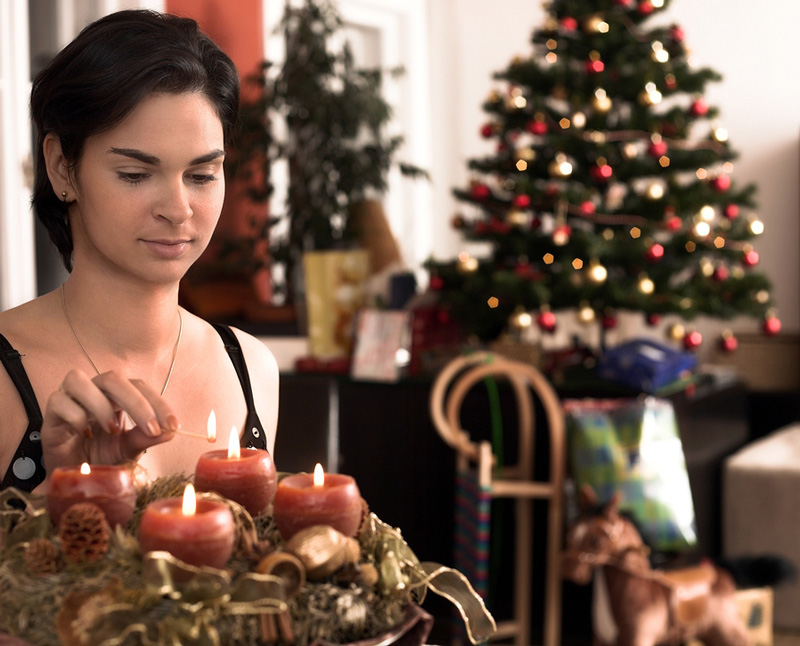
Grief is a burden that anyone who has lost a loved one is forced to carry, and the holiday season is when it can seem the heaviest.
This year, a difficult season for some has been made even harder by the ongoing worries and sorrows of the pandemic.
Those who work with the bereaved say the key for those dealing with loss is to realize that they do not have to follow any one specific set of rules for coping during the season.
Teddi Tomsic is currently helping people with the holidays through a bereavement ministry, which recently started at St. James Church in Conway. The group meets twice a month to talk about their experiences and learn ways to cope. Participants at the first meetings are facing their first major holiday season without their loved ones.
Tomsic gained experience helping people deal with grief through her years working as a chaplain in hospitals and at a Catholic nursing home in Connecticut.
The holidays can be the most difficult time, she said, because the world is full of sights and sounds that constantly remind us of a season that is supposed to be joyful, but for the bereaved can be a constant barrage of emotions and memories. She said it’s important for someone who is grieving to realize there is no right way to celebrate. Some people feel best keeping up all the same traditions, some invent new ways to celebrate and others do nothing at all during the holidays.
“Know what is going to work for you,” Tomsic said. “There is no specific formula. The key is to give yourself permission to do what you feel will best help you get through. The overall season and the music on the radio is not going to change, so you have to find the easiest way for you to cope.”
Another important thing to remember is that no emotional response is wrong. If a certain song on the radio makes you have to pull the car over and cry, that is perfectly fine. Feeling angry that your loved one isn’t here to share the season with you anymore is fine, and so are other emotions that come, including moments of happiness.
“People need to give themselves permission to feel the feelings that come — that is what gets you through,” Tomsic said. “The most important things to do is acknowledge the feelings you are having, whether it’s anger, sadness, disappointment, depression, guilt. All of these are part of the grieving process … You never stop grieving your loved one, but by going through the process, you come to a point where the grief is part of who you are but no longer dominates your life.”
During the holidays, it’s also important for relatives and friends of people dealing with grief to realize there are some things they can do to help:
* Listen. Lend a sympathetic ear and simply listen to whatever the grieving person wants to say. Don’t interrupt or offer well-meaning advice on how to deal with their grief. Let them share their emotions and their perspectives, without judgment. Avoid phrases like “I know what you’re going through,” because no two people grieve in the same way. Instead, acknowledge the unique nature of the person’s grief and let them share their experience.
* Don’t avoid saying the name of the person who has died. Saying their name in conversation acknowledges their life and the relationship they had with the bereaved.
* Don’t be afraid to share your memories. Many people appreciate hearing how much their loved one meant to others. Let them guide the conversation, however.
* Offer to help with daily tasks or holiday duties. Often there are plenty of people around to offer help immediately after a death, but not so many in the weeks or months afterward.


